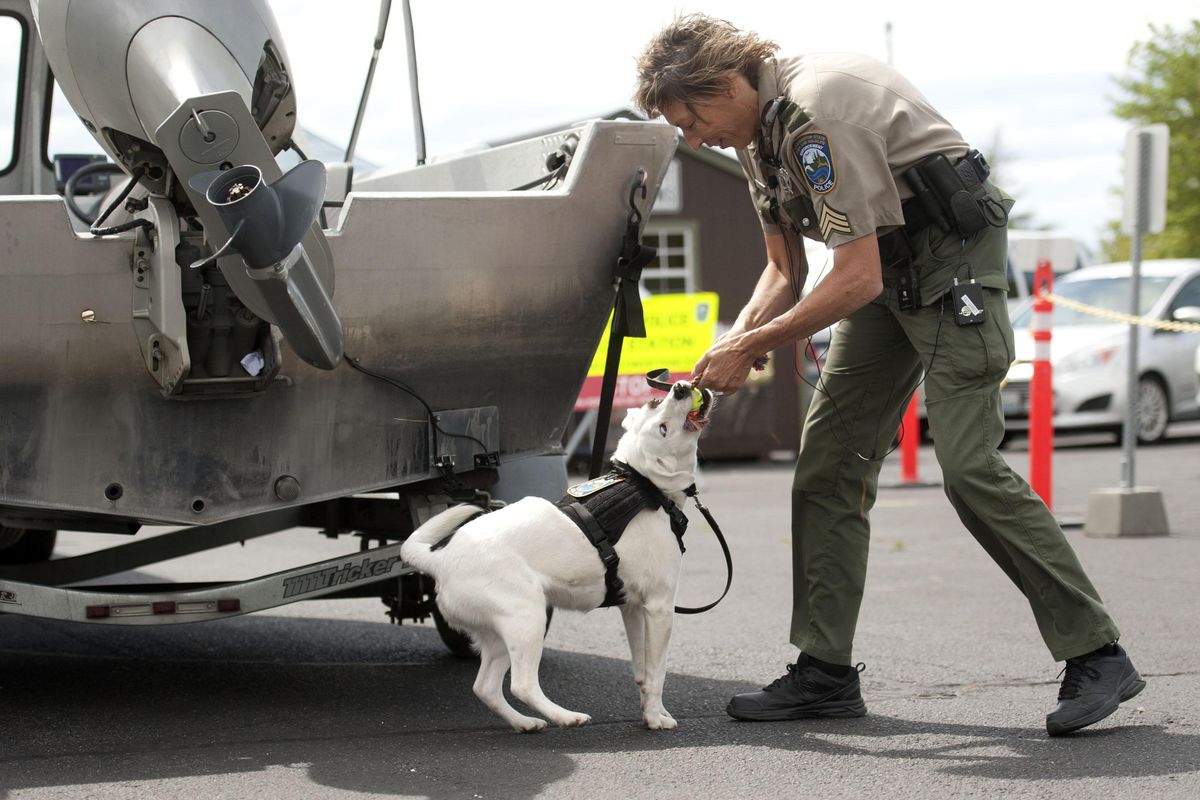WDFW adds Puddles, a mussel-sniffing dog, to its watercraft-inspection team

With summer just around the corner, Washington’s water has a new protector.
Puddles, the mussel-detecting dog, is the newest addition to the Washington Department of Fish and Wildlife’s watercraft-inspection team.
Invasive species such as quagga and zebra mussels can have devastating effects on water quality, wildlife, recreation and irrigation.
“We’re focused on one of the worst invasive species that is currently found in the United States and I’m thankful to say that it’s not yet in Washington today, and the newest member of our team is going to help us keep it that way,” said Justin Bush, executive coordinator of the Washington Invasive Species Council.
On Wednesday, Puddles rounded a watercraft during a demonstration at the Idaho/Washington state line check station. If there were mussels present, Puddles sat to indicate the find and was rewarded with some play time.
The check stations inspected more than 25,000 watercraft last year and found 18 carrying mussels. Puddles found her first boat carrying mussels on Tuesday and seven boats have been found carrying mussels statewide this year.
Puddles often works quicker than visually checking a watercraft, said Kim Thorburn, State Fish and Wildlife Commissioner.
The U.S. Bureau of Reclamation paid for Puddles’ training and Sergeant Pam Taylor handles the dog. The Jack Russell terrier mix is a rescue dog from Fresno, California, that went through the Green Dog Project to be trained by Muscle Dogs in Oakdale, California. Puddles’ training program is ongoing and spans two years, totaling $26,000.
Of all the invasive species, mussels would have the highest impact on Washington, said Bush, citing an Invasive Species Council study. It could cost the state more than $100 million a year to manage the impact of invasive mussels if they spread in Washington, Bush said.
“People live to fish here,” Thorburn said.
Fishing recreationally and commercially is an important industry in Washington. Puddles, “extends and facilitates what a limited number of enforcement officers can do,” Thorburn said.
Puddles isn’t the only dog on the Fish and Wildlife team.
The department is increasing its canine force in other areas of enforcement such as poaching, Thorburn said.
“We’re learning more and more about the value of canines supporting enforcement work in all aspects of wildlife enforcement,” Thorburn said.